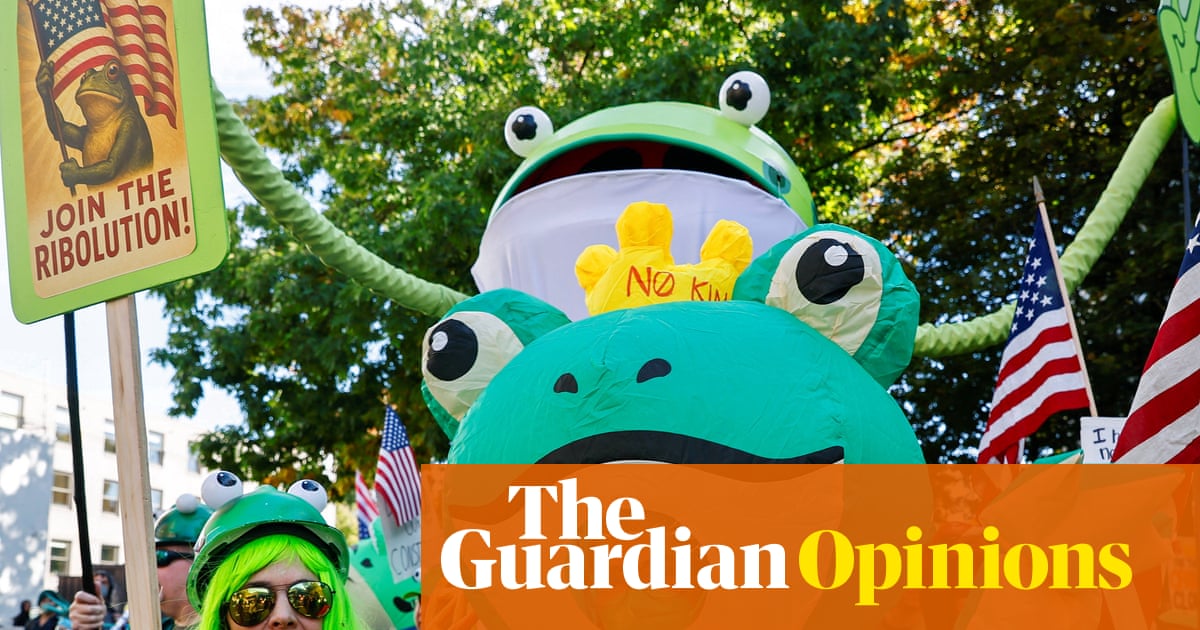
"When Donald Trump declared Portland, Oregon, a hellhole overtaken by the Radical Left's reign of terror, Portlanders took to the streets not as an angry mob, but as frogs. They showed up in inflatable costumes by the dozens. Clowns came out dancing. Naked cyclists rode among unicycles, chiming bike bells and honking rubber horns. A band of gray-haired banjo players incited not a riot but a folk-song singalong. It seemed that the more absurd the accusation, the sillier the response."
"As the attacks on democracy and mischaracterizations of millions of Americans become more extreme, the reasons for outrage grow. Reading the news is infuriating. But while anger can temporarily mobilize us, it is exhausting and disempowering in the long term. Constant rage doesn't feel good to most of us. As we buckle into this new normal of uncertainty, I'm glad to see we're showing up with creativity, humor, music, all tools that are central to who we are and how we cope."
Playful, absurd public responses — costumes, clowning, naked cycling, music — transform political attacks into creative demonstrations rather than violent confrontation. Anger and outrage can mobilize temporarily but cause exhaustion and disempowerment when sustained. Play cultivates resilience, agility, and comfort with uncertainty by fostering freely chosen, personally directed, intrinsically motivated engagement. Comfort with uncertainty can be learned through free play, which builds coping skills needed to persevere amid ongoing unpredictability. Playful approaches preserve joy, sustain community, and enable continued defense of rights while maintaining psychological stamina for long-term civic effort.
Read at www.theguardian.com
Unable to calculate read time
Collection
[
|
...
]